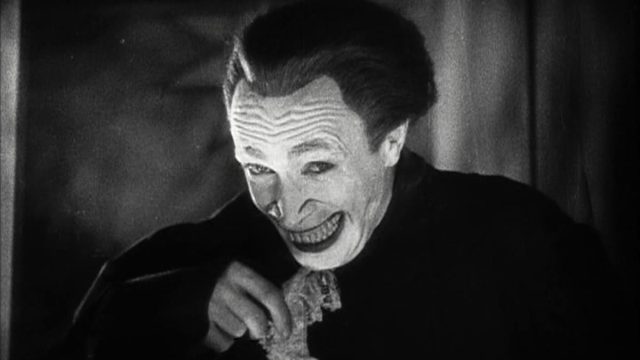Just like everyone else this fine Public Domain Day celebration, we start with Mickey. Who is not fair game, no matter what certain people would have you believe. Yes, “Steamboat Willie” and “Plane Crazy” were released in 1928—though only the silent version of “Plane Crazy.” Meaning those two shorts, and those two alone, are now public domain. You can open your long-awaited “Steamboat Willie”-only theatre and make a profit on it, and Disney can’t lay a hand on you. But if you play “The Galloping Gaucho” or advertise it with any version of Mickey or Minnie that isn’t the original design, Disney’s lawyers can and will stop you. And, yes, we’ll keep you posted on the list of Disney shorts that are fair game now, not to mention the actions of Disney’s lawyers about the ones that aren’t.
But Public Domain Day is about so much more! The main reason people are so passionate on the subject of the Mouse is that Disney’s lobbyists are the ones who pushed copyright out to such unreasonable limits in the first place. Tracking down who holds the rights to even famous works is an exercise in frustration in many cases. Agatha Christie seems to have only had a nephew, who predeceased her. Evelyn Waugh had seven children, but Virginia Woolf had none. Wanda Gág, who wrote the oldest picture book still in print, married—and had multiple lovers—but seems to have had no children. D. H. Lawrence’s life is so complicated I strongly recommend just watching Caitlin Doughty’s video about his ashes.
Still, even Disney only managed to hold off public domain for so long, and so we are celebrating a number of releases this week. The controversial Coming of Age in Samoa, if you want to read what Margaret Mead believed was true. The Mystery of the Blue Train is the first appearance of several recurring Christie characters and places. Yet another Tarzan. Dark Princess, one of W. E. B. DuBois’s novels. The Front Page—just the play, not the various movie adaptations, but we’re ever-closer on that. The Well of Loneliness, one of many things James Somerton was wrong about. The Unpleasantness at the Bellona Club and Memoirs of a Fox-Hunting Man and All Quiet on the Western Front, three ways of dealing with the trauma of World War I—admittedly one not actually by a veteran!
In film, well, that’s complicated. Not just the Mouse thing, but there’s that weird mid-century copyright kerfuffle where a lot of works fell into public domain because of paperwork glitches, and so just looking at a list of movies from that year doesn’t entirely give you the information you’re looking for. But The Man Who Laughs, which inspired whoever Bob Kane ripped off for The Joker. (Bill Finger and Jerry Robinson disagreed about that.) In Old Arizona, the first talkie filmed outside and the first singing cowboy picture. The Circus, the Chaplin picture with the most complicated backstory. Harold Lloyd’s final silent release, Speedy. The Cameraman, a long-thought-lost Buster Keaton film. “Should Married Men Go Home?,” the first Laurel and Hardy short.
Many of the films in public domain starting this year were made in the awkward gap when sound was just starting to take over; many have a soundtrack but no dialogue. However, 1928 was a year of movie firsts simply because so much was happening that year. It’s also a year of movie lasts, with many films’ being listed as “the last silent film of [person].” Careers were beginning and ending; in a way, the Mouse is symbolic of that. “Plane Crazy” was released with the intention of cashing in on Lindbergh’s popularity, but Walt had to pull it to add sound.
If you want to sing about the whole thing, you can sing “Hooray for Captain Spaulding.” “Let’s Do It, Let’s Fall in Love,” followed by “Makin’ Whoopee.” After all, “I Can’t Give You Anything But Love,” and you don’t want “The Empty Bed Blues.” “I Wanna Be Loved By You,” because “You’re the Cream in My Coffee.” I can’t think of a clever way to work “Mack the Knife” into this, but Anthony Pizzo took a stab at it for me.
If there is one good thing about the slow and inevitable march of time, it is the freedom of new works. We celebrate because public domain grants a kind of permanence. As someone whose work was stolen, poorly, by another website, I am a proponent of the importance of copyright to enable artists to make a living—and, I suppose, studios and publishers to continue their work. However, I’m also a passionate supporter of the release of “orphaned copyright,” works whose owners are impossible to trace or whose creators left no known heirs. The Disney family has enough money and didn’t need to prolong this day for twenty years, and I have even less sympathy for the company.
But you can support an independent creator by contributing to my Patreon or Ko-fi!

